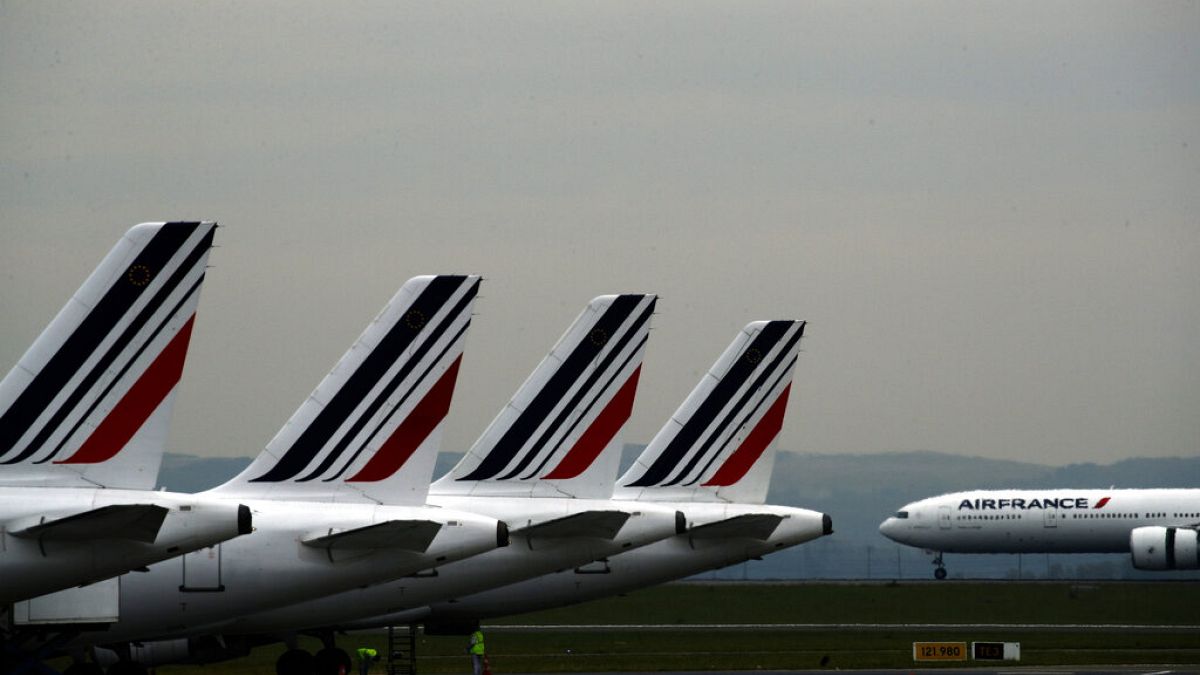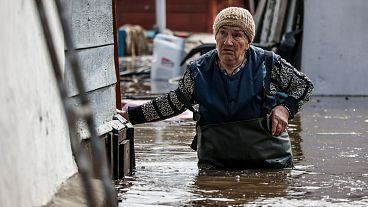The ban applies to three routes, representing 2.5% of France's annual domestic flights.
Last week, France officially banned domestic flights when a train ride of less than 2 and a half hours is available on the same route.
Multiple French ministers and President Emmanuel Macron were quick to promote the news, saying they were at the forefront of ambitious climate change policy.
Emmanuel Macron tweeted: “I committed to it. We are the first to do so", adding a picture that says 'Promise kept' stamped in green ink.
But a few days after the ban, Euronews Green found five flights from Paris Charles de Gaulle airport to Lyon, even though there are trains practically every hour for the same route and the journey only takes two hours.
How is that still possible if a ban has been put in place?
Only three flight routes are banned
Currently, the ban only applies to three routes operating out of Paris Orly airport: flights going to Bordeaux, Lyon and Nantes.
On top of this, the fine print reveals exceptions that mean flights will be able to keep running.
It takes less than two and a half hours to get from Paris to Bordeaux by train. But because Paris Charles de Gaulle airport is located in Roissy, about 20 kilometres away from Paris, the door-to-door journey takes a little over two and a half hours. So flying from Paris Charles de Gaulle to Bordeaux wasn't banned.
Another exception: if the routes don’t have enough early morning or late night trains, then domestic flights aren’t cut.
That’s what happened with the Lyon-Paris Charles de Gaulle flight even though the train takes only two hours.
Will the ban help to cut carbon emissions?
Climate activists and organisations criticised the French, government saying the ban doesn't go far enough to make a dent in aviation's carbon emissions
"This decree has no substance to it", said Christine Arrighi, a left-wing MP.
European airline body Airlines for Europe (A4E) also criticised the "symbolic ban" and called on governments to support "real and meaningful solutions" to decarbonise aviation.
The ban applies to 5,000 flights per year. France has nearly 200,000 domestic flights a year, meaning 2.5% of flights have been banned.
According to the French Directorate General for Civil Aviation, this ban will only cut 55,000 tonnes of CO2 annually – that represents 2.6% of total emissions from domestic flights in France per year.
Two of the banned routes, Paris Orly-Bordeaux and Paris Orly-Lyon had already been shut down by AirFrance back in 2020 following an economic downturn due to the pandemic.
The ban will apply for at least three years, after which the French government will look at its impact before taking any new steps.
The French Transport Minister, Clement Beaune, hit back at the accusations of greenwashing on Twitter.
"Should we go further? YES! [...] The decree is valid for 3 years so we can be more ambitious as we go further, by increasing the time of travel from 2.5 hours to at least 3 hours in the future," assuring more flights routes will be cut in the future.



